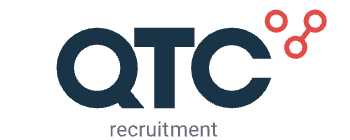Geschreven door raisa - 4 Minuten leestijd
Medical Technology and the Internet of Medical Things
With the Internet of Medical Things (IoMT) market estimated to be worth $158.1 billion in 2022, how can medtech companies can get IoMT right from a business perspective and how they can use the opportunity to deliver more value to health care?
Major advances in technology are driving innovation in medtech, leading to the development of an increasing number of connected medical devices that are able to generate, collect, analyse and transmit data. The data, along with the devices themselves, are creating the IoMT – a connected infrastructure of medical devices, software applications and health systems and services.
New research from Deloitte UK Centre for Health Solutions examines how the IoMT is transforming medtech’s role in health care. It outlines how medtech companies can get digital transformation right – whether through adapting their existing business models, inventing new ones or both. The industry's future will depend on its ability to demonstrate to providers and payers how connected medical devices contribute to the new value-based paradigm.
Also published on Deloitte.com
Want to stay informed about current Life Science and recruitment news on a regular base? Then register here for free.
What is the Internet of Medical Things?
From pregnancy testing kits to surgical instruments, artificial joints and MRI scanners, the medical technology (medtech) industry designs and manufactures a wide range of products. Technology is allowing these devices to generate, collect, analyse and transmit data, creating the Internet of Medical Things (IoMT) – a connected infrastructure of health systems and services. The IoMT and its relationship to medtech is instrumental in helping health care organisations achieve better patient outcomes, lower climbing health care costs, improve efficiency and activate new ways of engaging and empowering patients. The pace and scale of health care transformation will be exponential if Medtech can harness the IoMT.Is Medtech ready for the IoMT?
According to our survey of medical device companies with connected medical devices, manufacturers are anticipating an increase in the percentage of devices that are produced, as well as an increase in R&D investments.How will medtech companies evolve as connected devices transform health care?
While the IoMT has the potential to help alleviate some of the cost, access and care coordination challenges facing health care, the generation of data points through millions of connected medical devices will have little impact unless turned into actionable insight. Medtech companies will need to develop new strategies to harness the data provided by their digitally-enabled products and make their business and operating models relevant and competitive. For some medtech companies, this will include shifting from a product-based model to a value-based system. The Internet of Medical Things enables professionals to transform the world of MedTech. Are you ready to contribute to this industry? Then make sure to check out our vacancies and find the perfect role for you!Also published on Deloitte.com
Want to stay informed about current Life Science and recruitment news on a regular base? Then register here for free.
